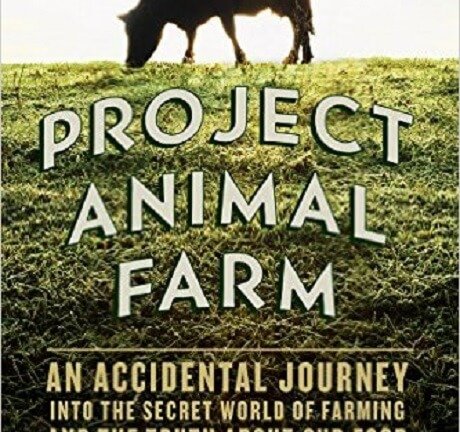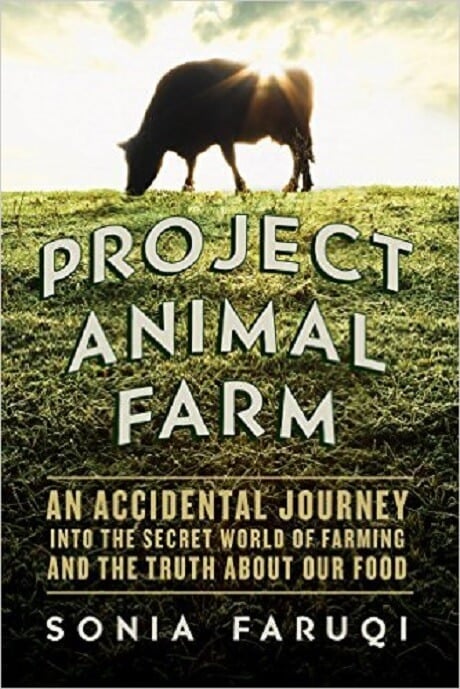When investment banker Sonia Faruqi lost her Wall Street job during the recession, she thought that volunteering for an organic dairy farm would be a good way to spend a break while she reassessed her life. She imagined a bucolic farm, with cows frolicking in fields and farmers gently milking happy animals. Instead, she found cows in misery, shackled by chains around their necks to stalls so narrow that they could not move their bodies sufficiently to remove the layers of excrement covering their backsides. Faruqi’s world changed. The realization that farmed animals are no longer raised on fields and in pastures was so shocking and so devastating that she made it her mission to seek out and report on animal agriculture in all its forms. Her book, Project Animal Farm: An Accidental Journey Into the Secret World of Farming and the Truth About Our Food, is the culmination of years of research, and it exposes the truth about how we really treat animals raised for food.
Project Animal Farm is sometimes graphic, often heartbreaking, and always illuminating. From the vegetarian farm owners who sell and slaughter animals they themselves refuse to eat to the workers who eagerly point out how intelligent the animals they raise are, it is frustratingly clear that cognitive dissonance is rife throughout this industry. And while many readers will not be as surprised by the horrendous conditions on farms as Faruqi was, her vivid descriptions are nevertheless chilling to read, particularly when she recounts the goats who were still blinking and hissing through severed windpipes as slaughterhouse workers began to dismember the still-kicking animals. It is impossible to finish this book and not come away desperate to help animals.
But perhaps the most troubling part of this book is that even after recounting egregious abuses of animals for hundreds of pages, Faruqi ultimately concludes that the system can be fixed by switching from factory farms back to traditional pasture-based farms, completely ignoring the fact that “humane” meat simply doesn’t exist. Despite years of investigations, PETA has never found a “humane” farm where animals don’t endure abuse, such as having part of their tails cut off and their ears painfully notched; being debeaked, dehorned, or castrated without anesthetics; being confined in crowded conditions without sunlight or fresh air; having their beloved children taken away from them; and being denied the companionship of others. And whether “free-range” or factory-farmed, most animals are sent on the same frightening journey, which only ends when they are hung upside down and bled to death.
Project Animal Farm is an enlightening read for even the most well-versed animal activist, but Faruqi is incorrect in the end: The most reasonable conclusion to draw from her research is that going vegan is the only humane choice.
PETA is a participant in the Amazon Services LLC Associates Program, an affiliate advertising program designed to provide a means for sites to earn advertising fees by advertising and linking to Amazon.com.






